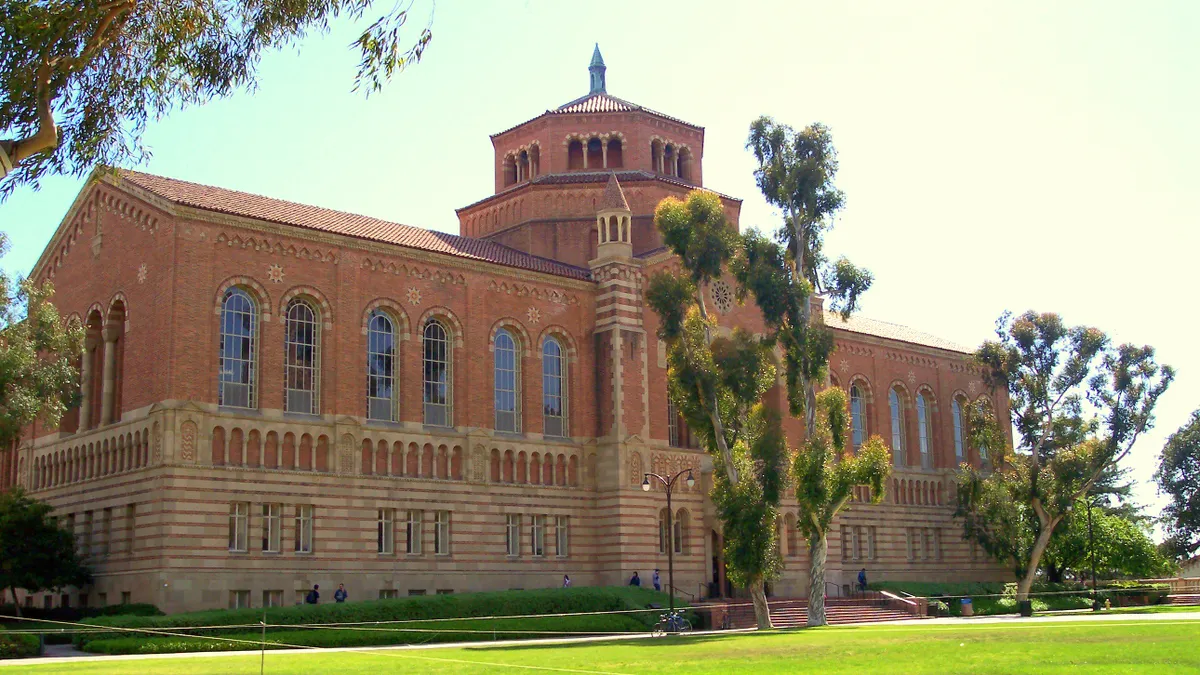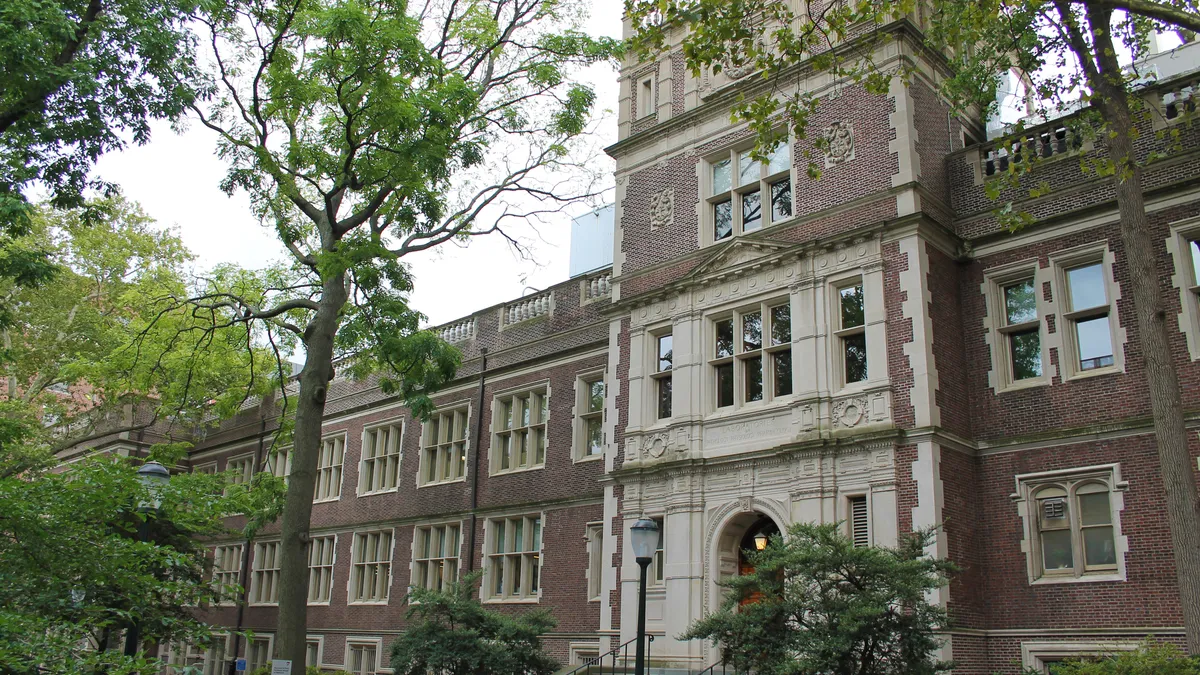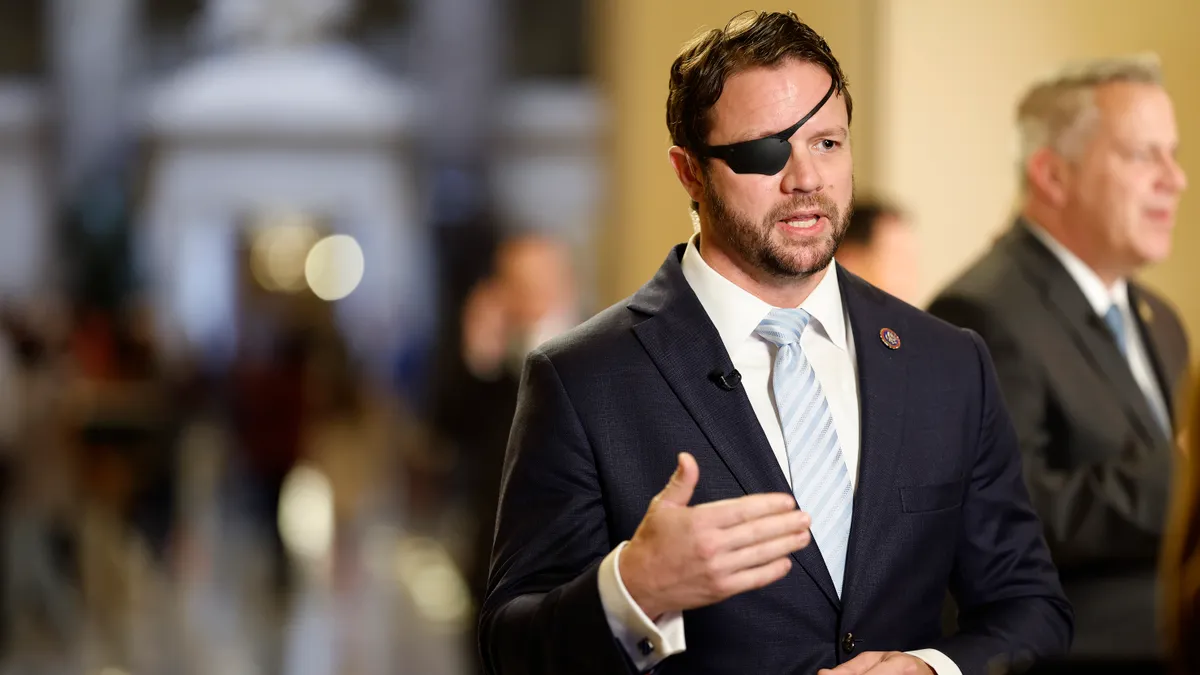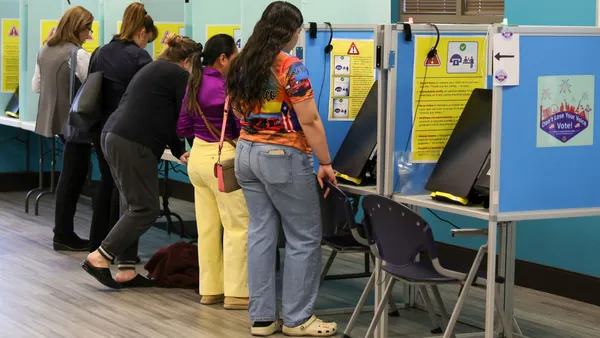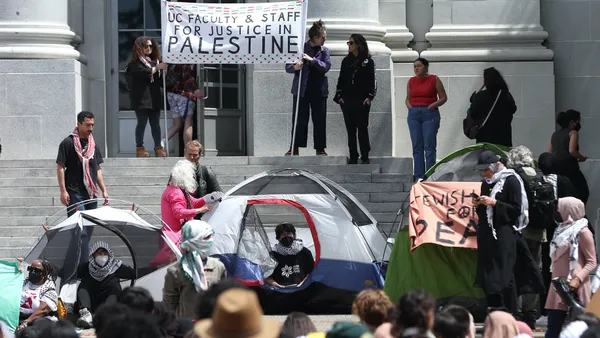Dive Brief:
- Two former University of California System students accused of sexual misconduct have filed a lawsuit seeking class-action status that alleges the system's Title IX policies are unfair.
- The students say they were denied their due process rights because they didn't have an opportunity to cross-examine their accusers and other witnesses before a neutral fact-finder.
- The outcome of the case could affect more than 500 students who were found responsible for sexual misconduct by the system, the lawsuit says.
Dive Insight:
Seeking class-action status is emerging as a new strategy to force colleges to overturn dozens — or even hundreds — of sanctions at once.
UC System officials have defended their processes, the Los Angeles Times reported. The system recently revised its policies after a California appeals court ruled that students who face severe sanctions have the right to question their accusers and other witnesses during a live hearing.
The ruling is aligned with Education Secretary Betsy DeVos' proposed overhaul of Title IX, which would guarantee cross-examinations with the accused and the accuser.
U of California spokesperson Claire Doan told Education Dive in an email that the system has not been served with the lawsuit and has no comment.
That appellate court ruling opened the door for class-action lawsuits, said Brett Sokolow, president of the Association of Title IX Administrators, in an email to Education Dive. Now, students who otherwise couldn't afford to sue the UC System could join the latest lawsuit in order to have their sanctions overturned, he explained.
The former students are seeking to have their sanctions and findings vacated and for the UC System to pay their attorneys' fees. They estimate more than 500 students could join the class-action lawsuit. The complaint follows a similar lawsuit filed last month against the California State University System, the Times reported.
Neither lawsuit has become class-action certified, which will be critical for it to go forward. But if either succeeds, it could have significant implications for how other colleges conduct Title IX investigations.
"One successful class action (lawsuit) should reasonably be binding on other similarly situated students elsewhere," Sokolow wrote. "Colleges in these jurisdictions need to buckle up and prepare for an onslaught if one of these cases are successful."
The lawsuit is the third of its kind to seek class-action status. The first came in early July when lawyers for a student accused of sexual assault amended his lawsuit against Michigan State University to seek class-action status.
Like the UC System case, it followed a critical court ruling that said students accused of sexual misconduct have the right to a live hearing. The ruling affects colleges in Michigan, Kentucky, Ohio and Tennessee.
Such rulings could open the floodgates for class-action litigation, said Peter Lake, director of Stetson University's Center for Excellence in Higher Education Law and Policy. That's because previous lawsuits brought by students accused of sexual misconduct generally contended there was an erroneous outcome in their case only, he said.
"When you say that the system as a whole is fundamentally unfair, that means that every single person that went through it was theoretically touched by an unfair system," Lake said. "It becomes a lot like recalling an entire line of cars because there's a defect with the engine that every single car has."



